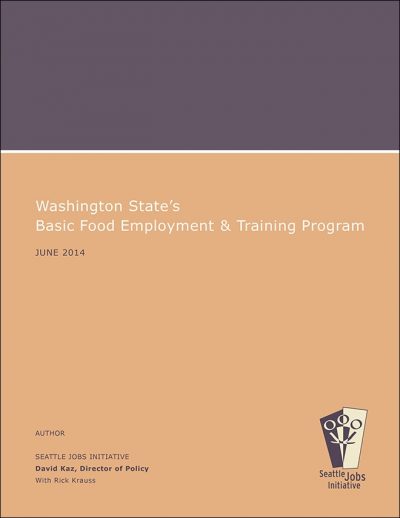
This report provides an extensive overview of Washington’s Basic Food Employment & Training (BFET) program and, more broadly, of federal Supplemental Nutrition Assistance Program Employment & Training (SNAP E&T).
BFET is viewed as a national model for expanding SNAP E&T programs by building on the existing service delivery capacity of community colleges and community-based workforce training providers. This paper covers the history and development of the BFET program; the nuts and bolts of how the BFET program operates; how the BFET program is utilized by community colleges and community-based organizations; and a short overview of program outcomes. The paper summarizes the best practices that have emerged from BFET and offers recommendations to other states and localities in expanding SNAP E&T programs.
In 2004, a group of government, community college and community-based organization (CBO) leaders came together in Seattle to utilize SNAP E&T in an innovative way to better meet the needs of low-income and low-skill residents. The Washington’s Basic Food Employment & Training (BFET) program grew from $150,000 at its launch in October 2005 to more than $29 million today, expanding from Seattle to the entire state, and from one community college and a handful of CBOs to all 34 of the state’s colleges and more than 30 CBOs.
We hope you'll find value in this report. We’d love to get a little information from you, which we'll use to notify you about relevant new resources.